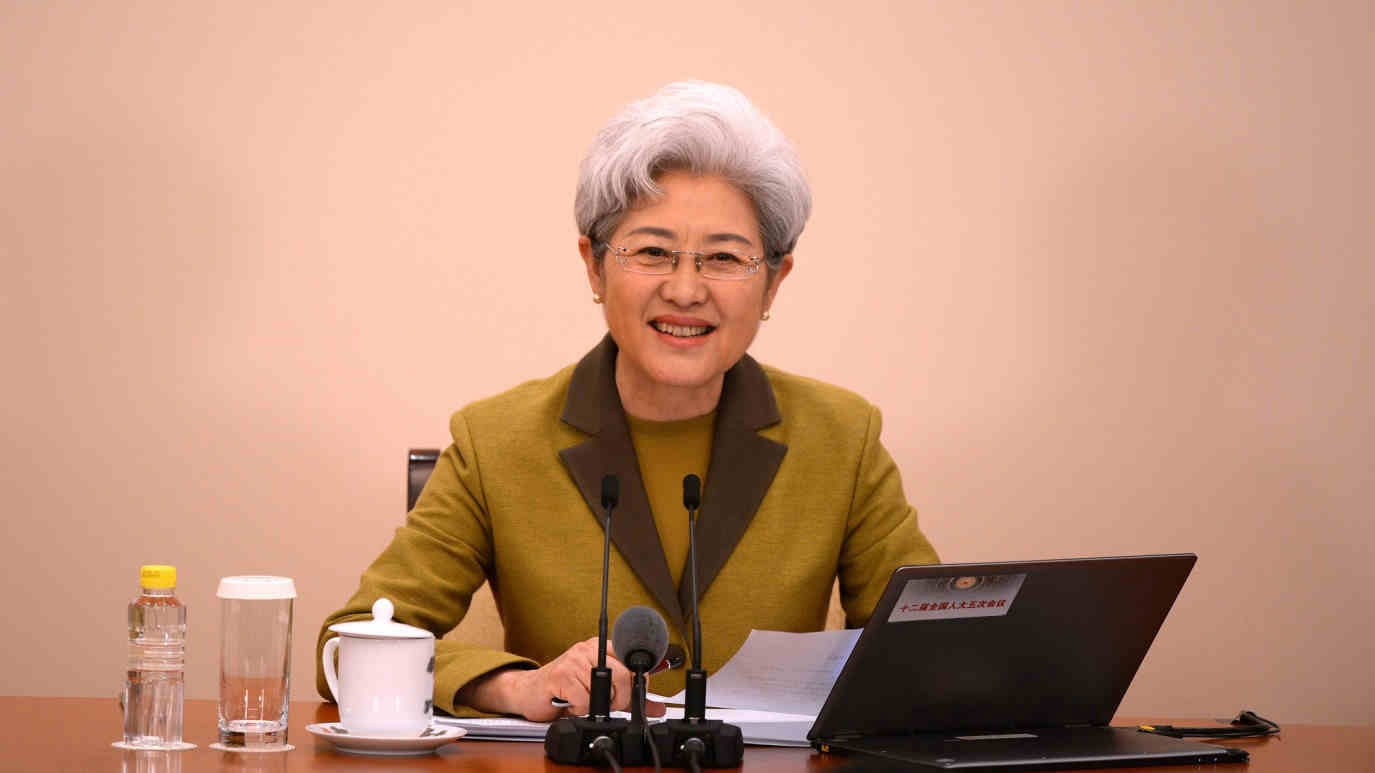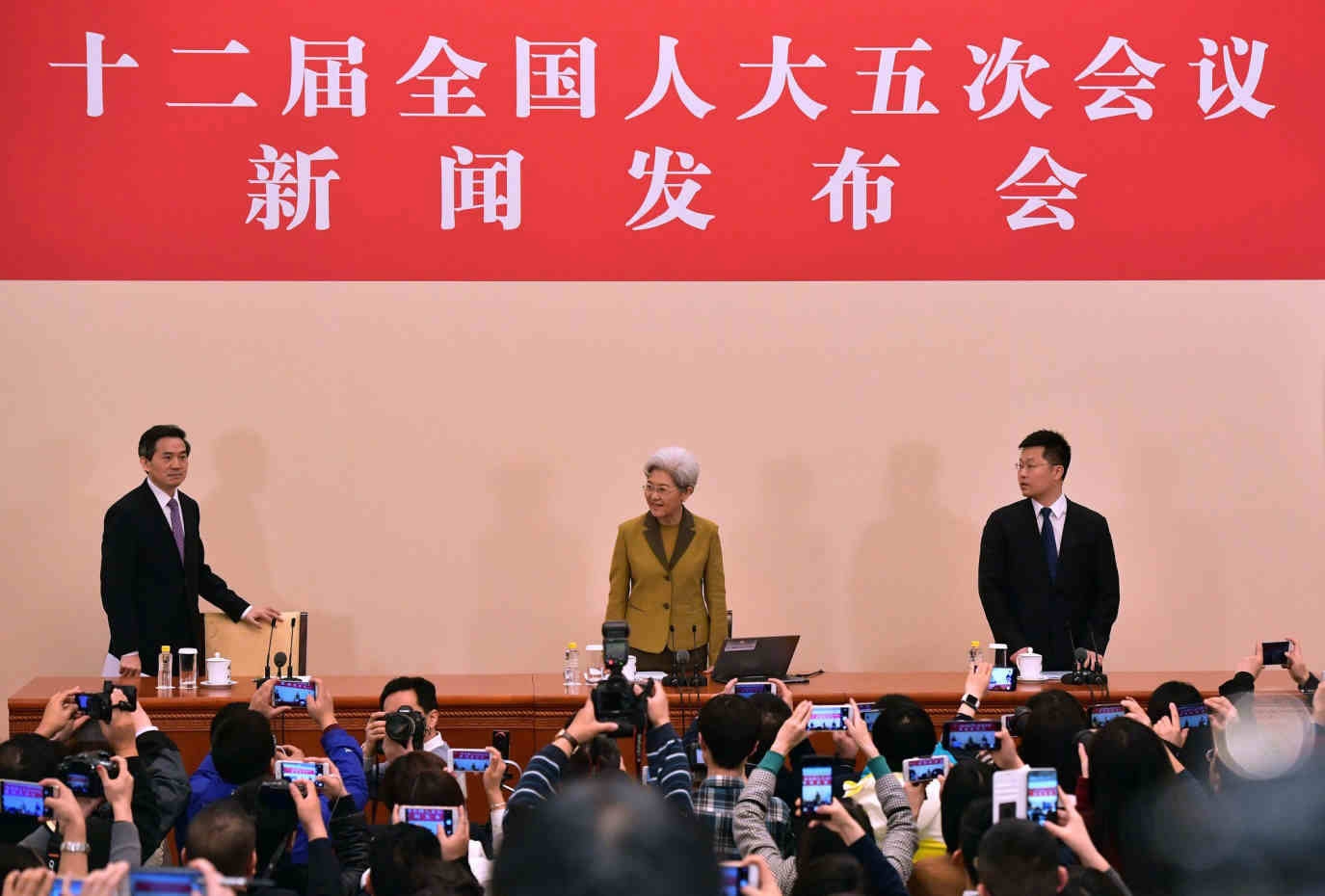
Politics
15:45, 07-Mar-2017
Kuhn’s view on Two Sessions: What we learn from NPC spokeswomam Fu Ying
Updated
10:58, 28-Jun-2018

By CGTN's commentator Robert Lawrence Kuhn
Press conferences during the Two Sessions are common; there are over 20 on diverse topics. That’s why the first press conference of the Fifth Plenum of the 12th National People’s Congress (NPC), held the day before the NPC’s official opening on March 5, seemed special.
NPC spokesperson Fu Ying, who is also chairperson of the NPC Foreign Affairs Committee (and a former ambassador to Australia and the United Kingdom), handled with aplomb a variety of pointed questions from, as expected, both international and domestic reporters. The questioning was sharp, articulated with journalistic trenchancy - notably from Chinese reporters, each of whom seemed to press a particular issue of domestic concern, from pollution to child care.

National People's Congress spokeswoman Fu Ying attends the press conference of the Fifth Plenum of the 12th National People’s Congress. /CGTN Photo
National People's Congress spokeswoman Fu Ying attends the press conference of the Fifth Plenum of the 12th National People’s Congress. /CGTN Photo
I took note that the Chinese reporters seemed to relish their increasing freedom to ask tough, real-world questions. Although there are certainly limits to the kinds of questions they can ask - there are blazing “red lines” (pun intended) they cannot cross - questioning government policies (many, but obviously not all of them) seems to have become fair game.
When CNN journalist Steven Jiang asked a blunt, detailed question about China’s military buildup, Fu Ying remarked with a touch of amusement that the content of questions in these NPC press conferences has been consistent over the years, with international reporters focusing on China’s military and domestic reporters focusing on China’s pollution! She then offered a more incisive response: “Of all the conflicts and wars in the world that have killed and displaced so many people and caused significant loss of property,” she asked rhetorically, “which one is China to blame for?"
I’d find it hard to imagine a more thoughtful, cosmopolitan and dignified person to represent China than Fu Ying. Nor could I think of a more sophisticated “debating partner.” Although I might take issue with several of her answers, particularly on international affairs, her elegant demeanor and understated confidence provided a pitch-perfect counterpoint to the sharp clarity of her responses (I’d surmise that if Fu Ying were a sports superstar instead of a political superstar, and she were a “free agent”, many countries would go happily into a bidding war to recruit her to be their spokesperson).
It is fitting that in the Chinese system, leadership must report to the people. Every year, the government leader reports to the NPC, and every five years (including this year), the party leader reports to the National Congress of the Communist Party of China. Although everyone knows that this “reporting” has long epitomized the triumph of form over substance (in that Party leaders have exercised almost complete control over congressional delegates such that there has not been actual supervision of the leaders by the people), when talking to delegates outside the Great Hall of the People in the cold Beijing air, one can feel on one’s face, as it were, the intermittent winds of change.
********************************************
Robert Lawrence Kuhn is a public intellectual, political/economics commentator, and international corporate strategist. He is the host of Closer To China with R.L. Kuhn on China Global Television Network (CGTN), produced by Adam Zhu.
1km

SITEMAP
Copyright © 2018 CGTN. Beijing ICP prepared NO.16065310-3
Copyright © 2018 CGTN. Beijing ICP prepared NO.16065310-3